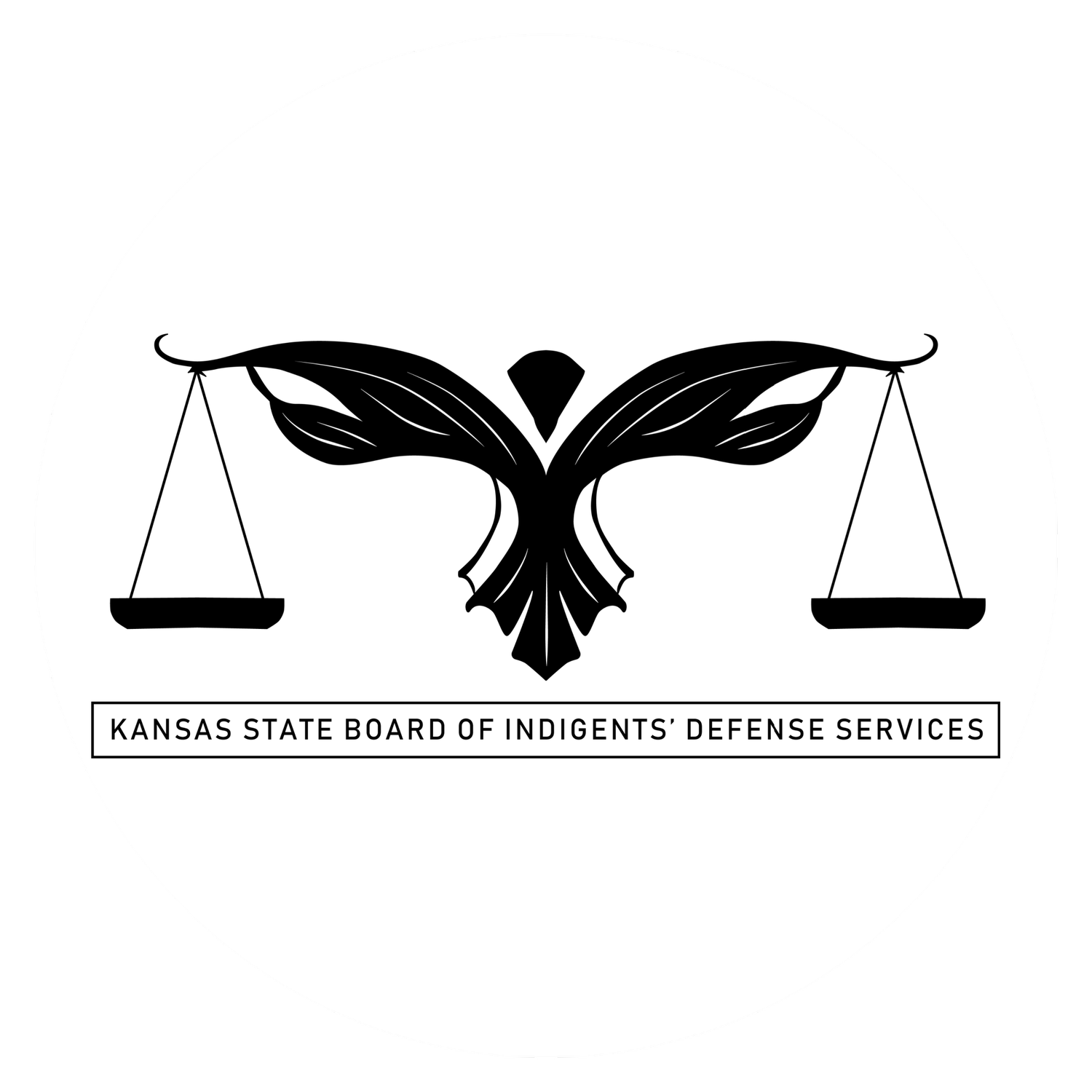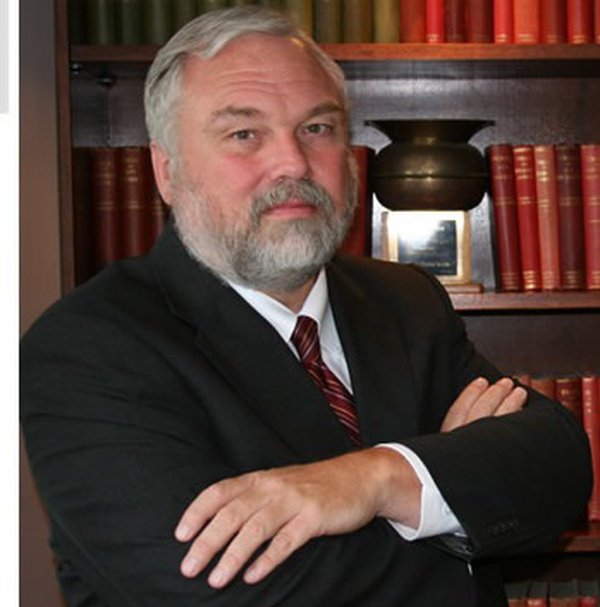Profile: A Conversation with BIDS Board Member Richard Ney
by Caroline Zuschek, Appellate Defender
Richard Ney and I start our conversation talking about people we know in common. He mentions Pam Sullivan, whom he hired during his tenure at the Sedgwick County Public Defender’s Office, but who left the agency for a while to work as the Chancellor for the Salina Dioceses. He says if he could pick any title to have, he’d go with Chancellor. “No one knows what it means,” he says, “but can you imagine making dinner reservations as a Chancellor?”
Chancellor of the Board is as good a title as any for Richard, who has worked for BIDS in about every feasible capacity—and for the Federal Defenders in an equally wide variety of roles—before being appointed to the Board. Richard got his hunger for criminal defense in law school at Boston University, where he worked with the Roxbury Defenders Unit. He went to law school with no intention of being a lawyer, however. A graduate of the University of Missouri’s School of Journalism, he thought law school would make him a better journalist. It likely did—he graduated law school and returned to the Peoria Journal Star, now the Peoria Journal, and did investigative reporting, and worked as an editor, as well. But, when an Assistant Public Defender role opened up in Danville, Illinois, he took a pay cut to accept the position. He worked his way up to Deputy, and then became his office’s Public Defender—a position equivalent to Chief.
In 1984, he moved to Kansas to start the Sedgwick County Public Defender’s Office, a job he highlights as his favorite in public defense. “It was the wild west,” he explained. “No one wanted us. Not the prosecutors, not the court, not the bar.” “It was quite the opportunity,” he said. Richard also shared an interesting piece of trivia with me about his time in Sedgwick: he and his colleagues put out a newsletter for the agency, and other criminal-defense counsel. The irony? It, too, was called “The Rap Sheet.”
Richard worked in Sedgwick for around 8 years before leaving to join the Federal Public Defenders. He became the Chief Public Defender for the District of Hawaii, and later, for Hawaii and Guam. He said that was a very busy time in his life, noting that we are actually closer to his office in Hawaii as we read this than he was to Hawaii from his office in Guam. Richard would work Monday through Friday in Guam, then fly the red-eye Friday evening, to land in Hawaii, where it was again Friday morning. He’d go to the office again, this time in Hawaii. He grew exhausted explaining over and over why his time sheet recorded that he’d worked two Fridays each week.
Richard is the kind of guy who appears to need two Fridays every week. Still, he said he left Hawaii and the Federal Public Defenders to return to Wichita, because he didn’t love federal public defense practice. He said that while he appreciated the resources and the ability to hire good attorneys, there wasn’t much of an opportunity for real lawyering like the kind he’d done for BIDS. “I’m more of a street lawyer kind of guy,” he told me. “Federal practice is mostly drugs and guns.” Admittedly, he said, he did work on some exciting cases in Hawaii, where federal defenders were appointed to defend individuals accused of homicides on military bases, and where federal prosecutions involving prisoner’s rights, environmental issues, and war crimes were initiated. But, he missed Wichita.
When he returned, he was offered a contract to take conflict cases in Sedgwick County for BIDS. This made it easy to “slide into private practice.” He said he knew he needed a partner though, so he called Sid Brush, someone he’d worked with in Illinois and then had hired as the Office Manager for the Sedgwick County Office. He asked Sid to tell him who the best public defender she knew was—and she told him Douglas Adams. He selected Doug based on her recommendation and a short phone call, and they worked together for years, before Doug passed this last year. Richard still maintains his private practice, which he likes because he can choose what to do. He has been in private practice for 25 years, and from 2008 to 2013, he also served as a federal capital resource counsel, where he advised and trained federal capital trial teams.
I asked Richard what his most memorable experience was as a public defender. He said the most fun he ever had in a court room was representing Lisa Dunn on her habeas case, and then on retrial. I asked what the result was, and he laughed. “She was acquitted, of course. There are very few convictions that are fun.” I googled the case and recommend you do the same—Ms. Dunn was an 18-year-old girl implicated in a killing spree led by Daniel Remeta that claimed 6 victims in 3 states. Ney helped secure her freedom after 8 years in prison, while—get this—defending her on retrial on vacation from his job as a Federal Defender.
I told Richard he had unusual ideas about vacations, but he assured me that he stayed busy outside of the courtroom, too. In fact, he and his wife raised 6 kids, who were born across four decades. Richard says he “isn’t a hobby kind of guy,” but that if he had to pick, his hobby would be travelling to see operas. He describes himself as an opera lover, and his wife as someone who pretends, for his sake, to love opera, too. They have travelled to Paris, New York, and Santa Fe, among other places, to catch performances.
To close out our interview, I ask Richard if he has any advice for us. “What do you say to public defenders?” He wonders, “Everything sounds glib.” But I beg. “Okay,” he relents, “This is what I used to tell my attorneys.” “There are three rules for being a public defender. Rule 1: People go to jail. Rule 2: You can’t change Rule 1, no matter how hard you try. Rule 3: You always have to try.” Chancellor Ney laughs knowingly. “Public defenders. We fight the hardest on the hopeless cases, don’t we?”

